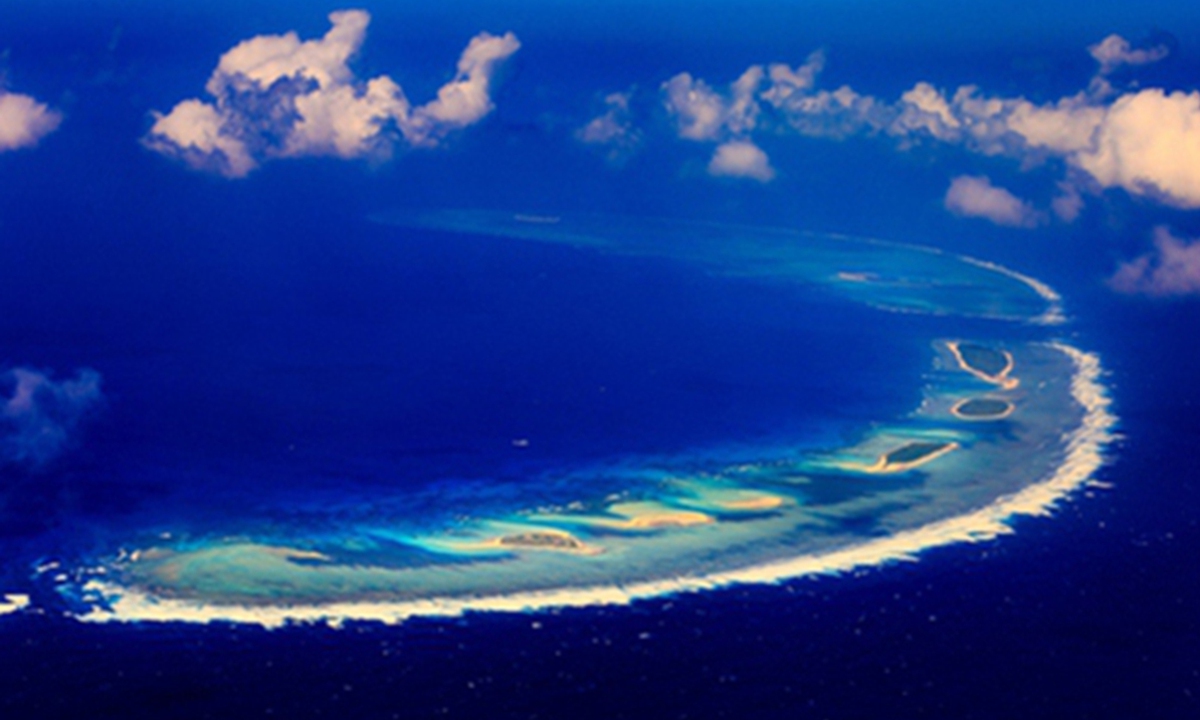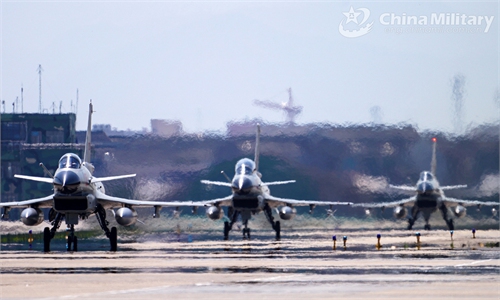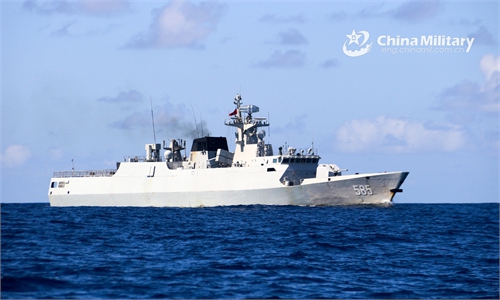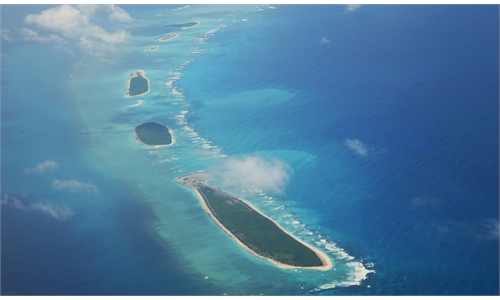
Xisha Islands in the South China Sea Photo: VCG
Ever since China's Coast Guard Law came into effect on February 1, this domestic legislation of China has been groundlessly questioned by many Western media outlets and some in China's neighboring countries.They claim that China's maritime law sets an ambiguous range for law enforcement operations in the South China Sea, where there are overlapping claims. They further assert that China is coercing other countries with law enforcement activities that go against international law. Such accusations are deceptive. One can be easily misled by such malicious logic if they cannot tell right from wrong.
What are the overlapping claims?
Based on its territorial sovereignty over islands in the South China Sea, China has historical rights to the maritime areas. These include internal and territorial waters, contiguous zones, exclusive economic zones, and continental shelves. In the 1970s, with the rapid development of the laws of the sea, some countries along the South China Sea began making maritime rights claims in the waters. This generated the overlapping claims in the region.
According to the laws of the sea (including the United Nations Convention on the Law of the Sea), countries along any given sea area enjoy corresponding rights of management and law enforcement in the respective waters.
Many countries, including Vietnam and the Philippines, have set relatively vague scopes for law enforcement based on their domestic laws of the sea. Therefore, this is purely a double standard move to slander China by accusing it of being ambiguous about waters of overlapping claims when it comes to law enforcement regulations.
Some say the use of weapons are banned in international laws unless they are permitted by UN Security Council, or for self-defense. They thus claim China cannot use any weapon against foreign ships and personnel in the South China Sea.
This is an obvious rhetoric to confuse right and wrong. Using weapons in law enforcement is totally different from the related scenarios stipulated in the UN Chart.
In fact, the use of force in law enforcement has long been approved by relevant international laws. For example, The United Nations Agreement for the Implementation of the Provisions of the United Nations Convention on the Law of the Sea of 10 December 1982 relating to the Conservation and Management of Straddling Fish Stocks and Highly Migratory Fish Stocks stipulates that, "the degree of force used shall not exceed that reasonably required in the circumstances." It clarifies the necessity of law enforcement by force in specific circumstances.
There are similar provisions in other international treaties and documents as well. These include the United Nations Convention on the Law of the Sea, the Convention for the Suppression of Unlawful Acts against the Safety of Maritime Navigation, the United Nations Code of Conduct for Law Enforcement Officials, and the Basic Principles on the Use of Force and Firearms by Law Enforcement Officials.
Some of the above-mentioned documents also set restrictions on the use of force. They clarify that the use of force is legal in situations where maritime law enforcement is obstructed, or the safety of law enforcement personnel is threatened, or when violent crimes at sea are being cracked down - just as long as specific procedures are followed and the necessary limits are not exceeded.
Most coastal countries, including Malaysia, South Korea, and the US, have passed legislation authorizing maritime law enforcement to use force. The Law on Vietnam Coast Guard clearly says that the Vietnamese coast guard can open fire in certain dangerous circumstances.
China's Coast Guard Law not only authorizes the law enforcement by force, but also makes detailed provisions on the use of different weapons, which enhances the predictability of law enforcement. At the same time, the law also sets up a system of law enforcement disclosure, law enforcement recording, and investigation for responsibility of law enforcement faults. These moves strengthen the supervision and accountability of the use of force.
For a long time, China's maritime law enforcement forces have not taken any actions against foreign fishermen in normal operations, let alone measures that endanger their lives. China's coast guard, which stands on the side of justice, has always kept in mind the long-term and overall picture. It has exercised maximum restraint.
China's maritime law enforcement activities are expected to be more scientific and standardized with the enactment of the Coast Guard Law. The neighboring countries concerned should take this opportunity to work with China to maintain law enforcement order in the South China Sea, and to jointly safeguard regional peace and harmony.
The author is an observer of international affairs. opinion@globaltimes.com.cn



